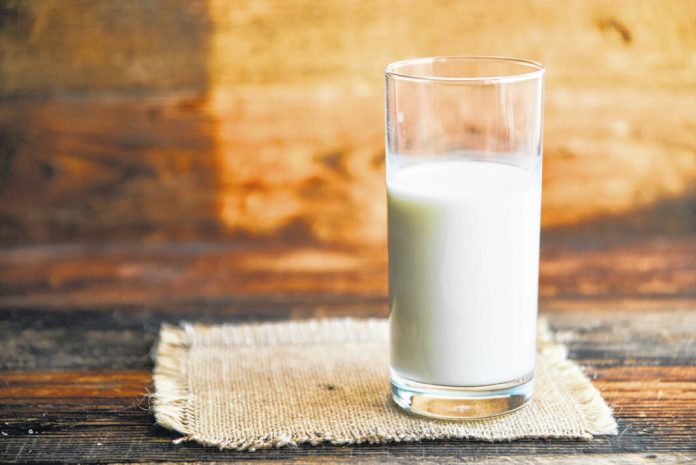PHILADELPHIA — A dairy-laden legal battle is playing out in Lancaster County, where the Pennsylvania Department of Agriculture is suing an Amish farmer to stop his sale of raw milk products that authorities have tied to illnesses in several states.
Amos Miller has been selling raw, unpasteurized milk, as well as products made from it, since at least 2014, the department said in a lawsuit filed in January.
As a result of legal issues dating back nearly a decade, Miller has become something of a political figure, with prominent Republicans such as U.S. Rep. Thomas Massie, R-Ky., and Donald Trump Jr., as well as independent presidential candidate Robert F. Kennedy Jr. weighing in on social media. Proponents have also raised hundreds of thousands of dollars for Miller’s legal fees through online fundraising platforms.
“This is the final stage of a long war by Big Ag, food processors and their government puppets to destroy family farms and wholesome food production,” Kennedy wrote last month on X, formerly Twitter. “Thank you Amos for standing up for our health and our liberty to grow healthy food.”
Supporters have said in court that Miller’s milk has worked wonders for their health, and his legal team argues that stopping sales is a violation of his and his customers’ rights. But the Department of Agriculture says that the raw milk and other unregulated products are a danger to public health, and that he is selling them in violation of food safety laws.
It is legal to sell raw milk in Pennsylvania with a permit from the Department of Agriculture. Most other products made from raw milk — such as yogurt, butter and soft cheeses — can’t legally be sold in the state.
About 114 other dairies in Pennsylvania are permitted to sell raw milk, but Miller has historically refused to pursue a permit. Authorities have also alleged that Miller’s retail operations aren’t registered.
Now, as part of the ongoing case, a Lancaster County judge has issued an order keeping Miller from selling raw milk and related products in Pennsylvania as litigation plays out, but seemingly allowing sales to continue to residents of other states.
The case started with a search warrant
In early January, the Pennsylvania Department of Agriculture executed a search warrant on Miller’s farm in Upper Leacock Township that stemmed from an investigation into food-borne illnesses in Michigan and New York.
In court filings, authorities said that health officials in those states informed them that two people had been sickened by products traced back to Miller’s Organic Farm, including raw eggnog. The illnesses, court documents indicate, were caused by a strain of E. coli.
Authorities seized raw milk and other products, and restricted other food items from being sold or used. About 25% of the samples taken during the search tested positive for listeria, an illness-causing bacteria, according to court documents.
In a court filing, Miller’s lawyer, Robert Barnes, argued that the Department of Agriculture “materially misled the court with perjured affidavits” to obtain their warrant.
Miller is ordered to stop raw milk sales
Following the search, the Department of Agriculture sued Miller, seeking an injunction to stop the production and sale of his raw milk and other products. Miller and his co-defendants — which include his wife and their various businesses — “operate in flagrant violation of Pennsylvania laws enacted for the purpose of protecting public health and safety,” the department’s complaint said.
Judge Thomas Sponaugle of the Lancaster County Court of Common Pleas granted the injunction, writing in an order that allowing sales to continue would cause “immediate and irreparable injury.”
Miller’s legal team wrote in a filing that the injunction caused substantial harm to not only Miller, but also “the local Amish community, and thousands of Americans unable to produce or procure the food they need to survive.” The ruling, the objection added, would bankrupt Miller, damage Lancaster’s Amish farming economy, and violated the “constitutional protected individual choice” of customers.
Several supporters testified in Miller’s defense at a February hearing. One North Carolina woman testified that a nutritionist had recommended raw milk as a treatment for her son who had been diagnosed with autism, and said that “he was a different kid” after consuming it, according to Lancaster Online. Miller’s legal team filed more than 350 declarations from customers nationwide on his behalf, the publication reported.
Still, on March 1, Sponaugle issued another order preventing Miller from marketing and selling raw milk and other products, but allowing him to produce them for “immediate family members on a noncommercial basis.”
Sponaugle wrote that ignoring legal requirements for the sale of raw milk would “improperly usurp the authority and responsibility of the Pennsylvania General Assembly.” If Miller applied for a raw milk permit, Sponaugle continued, the court would “immediately reconsider whether to modify or terminate” the order.
Barnes, however, told the court that Miller getting a permit to sell raw milk would prevent him from selling other raw milk-derived products, according to Lancaster Online. Miller has also argued that he does not sell his products to the public, but rather to members of his farm’s “private membership association,” and the state’s regulations should not apply to him.







